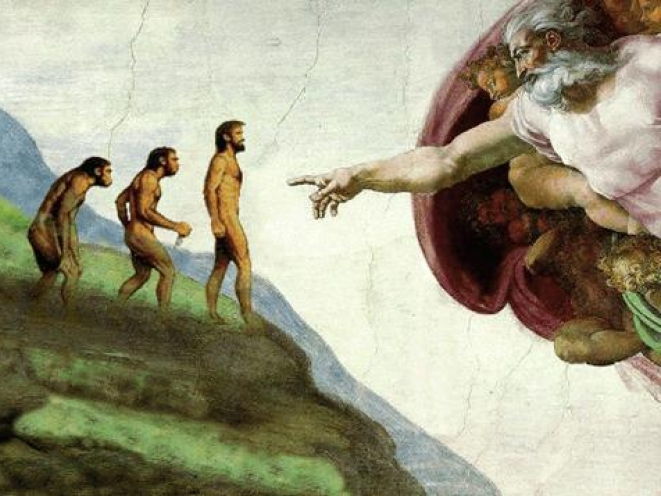The creationism is a religious theory or belief in which mankind, all life on Earth and in the universe are the result of the creation of a supernatural being.
This theory is based on the assumption that these creations would not be subject to evolution or transformation.
Creationism is a discourse based on written traditions that seek literal explanations for mythical-religious narratives present in the sacred scriptures.
Thus, the world’s religions will build their own creationist theory. In Greek civilization, it was with the Titans that the origin of man took place, molded in clay, as in the biblical narrative, in which man would have been created after heaven and earth.
It is worth mentioning that three important monotheistic religions have their creationist versions and are widely accepted by the population: Judaism , Christianity and Islam .

In general, all civilizations seek or sought to account for the origin of Man and the Universe and each has a version on the subject.
In large part, the explanation is religious, which states that all living beings would have been created by one or more entities (almost always anthropomorphic ). This is because, the Creator makes his creature in his image and likeness.
Note that in beliefs of this nature, divine interference extends beyond the act of creation, for the divine being continues to act in the mortal world as when God inspires Noah to build his ark to escape the flood.
Scientific Creationism
Although the term Creationism applies to all mythical-religious explanations for the origin of life in the Universe, this term was best known from its opposition to evolutionary science in the 18th century, when the contrast between scientific theories, such as that of evolution, was exposed , and religious explanations.
Therefore, based on scientific evolutionary explanations, especially those of Charles Darwin , during the 19th century, creationist arguments will make their revisions and reinterpretations.
This movement is clearer in the United States, where the term “creationism” became popular in the 1920s, when it became associated with the fundamental position of Christianity on the theme of human evolution , especially among Protestant churches in that country.

Creationists will often reject the conclusions of scientific research. However, some will rely on scientism to make arguments that go beyond the religious nature. This is because they incorporate scientific and philosophical attributes to support the evidence that there had been planning regarding the emergence of species ( Intelligent Design ).
It is also important to highlight that there is a creationist position that affirms the existence of a Creator without identifying him, while others affirm who the Creator is.
